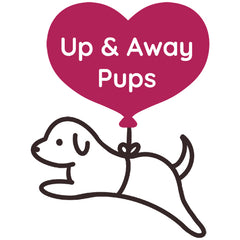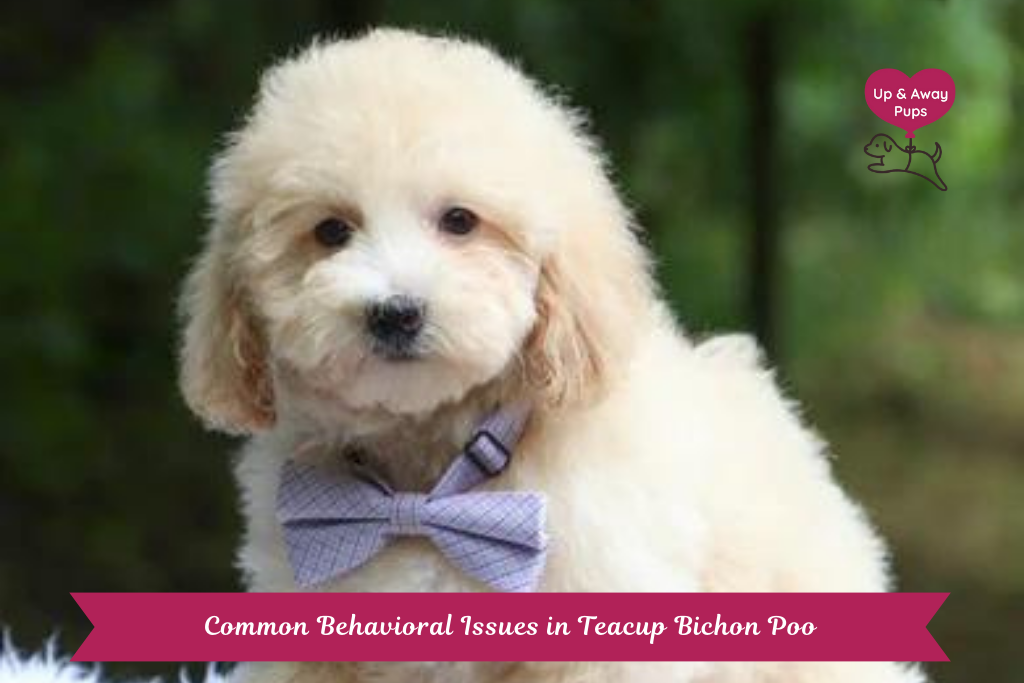Understanding and Resolving Common Behavioral Issues in Teacup Bichon Poo
Bichpoo is renowned as the designer dog breed created by crossbreeding two great dog breeds. These involve the Bichon Frise and are often indicated as Miniature Poodles. Teacup Bich Poos, which result from a crossbreed between Bichon Frise and Poodle, are friendly dogs with a cute look. However, being a dog, they have certain behavioral problems that are common in all dogs, and a proper solution has to be sought for a good relationship. This guide aims to focus on the general bad behaviors in Teacup Bichpoo and the possible ways to solve them.
Overview of Teacup Bichon Poo
It originated in Australia in the late 1990s and has gained an enormous amount of popularity in Australia in the subsequent years. Chevromist Kennels in Melbourne, Australia, are reported to have been the first breeders; this is, however, hard to confirm. Whomever the mastermind behind this cross, they were seeking to meld the entity intrinsic to both parent breeds, which includes the favorable low-shedding factor that both come with. Such a crossing is also done in an attempt to eliminate some undesirable traits, and while it needs to be mentioned that Bichpoos are less clingy than Bichons, as well as sturdier than Miniature and Toy Poodles, the latter might be on the delicate side.
Recognizing Behavioral Issues in Teacup Bich Poos
It will need to be put in the right place to start with the solutions before defining the exact behavioral problems that Teacup Bich Poos may display. Knowledge of these problems shall aid in their solving or management. Teacup Bich Poos may share certain Bichon Frise behavior traits, making it essential to understand their temperament and training needs.
Separation Anxiety
Although barking is typical for canine communication, Teacup Bich Poos may indulge in this kind of vocalization. This can be precipitated by boredom, fear, or poor socialization. Thus, recognizing the root of this problem is critical for handling it.
Excessive Barking
While most Teacup Bich Poos are sociable, some can be aggressive toward other animals and people. Such behavior may be due to fear, lack of socialization, or territorial phenomena. Fighting aggression is work that must be done comprehensively and methodically.
Aggression Towards Other Pets or People
However, it has to be borne in mind that once the problems are defined action plans are possible to adopt to address the same. Below are ways of addressing some of the typical behavioral issues in Teacup Bich Poos.
Strategies for Resolving Behavioral Issues
After the problems have been pointed out, it is easier to combine efficient methods to handle and solve the problems. Here is a guide on how to handle ordinary behavioral issues with Teacup Bich Poos.
Addressing Separation Anxiety
Gradual Desensitization: In the initial stages, confine your Teacup Bich Poo alone for a short time more progressively increase this time. This makes them grow accustomed to being on their own without having to develop anxiety.
Create a Safe Space: Design your house to create a safe and warm space for your dog when you are not around. This could be a crate, a box, or a room specifically allocated to their playthings, toys, and bedding.
Positive Reinforcement: Reward your Teacup Bich Poo with treats and baby talk if he or she does not panic when you are away. This actually supports the notion that loneliness can be good, or at least it is normal to be alone and function well.
Managing Excessive Barking
Provide Mental and Physical Stimulation: Do pay attention to the physical activity of the Teacup Bich Poo and engage it in several games and activities that relate to its intelligence while following online training programms. These Common causes of excessive barking include boredom. This can be avoided by providing your pet with toys to play with or taking them for a walk and or frolicking with them.
Training Commands: Commands such as “quiet” or “enough” should be taught to the dog, and the trainer must ensure that the command is used every time the dog begins to bark excessively. Reward those who respond to the command to encourage the specific behavior to continue.
Avoid Reinforcing Barking: Do not feed your Teacup Bich Poo with something or attention every time they bark. It only encourages them. This can foster the conduct.
Handling Aggression
Socialization: Ideal and proper interactions with other pets and people are necessary from an early stage of an animal’s life. Socialize your Teacup Bich Poo with areas, other animals, and people gradually to help them become more confident animals.
Training and Obedience: First, ensure that the basic set of obedience is undertaken to establish some order. Some helpful commands that can be used in handling aggressive behavior include sit, stay, and leave.
Sometimes, Bichon Poodle Health Problems, like joint pain or dental issues, can cause irritability, making training more challenging. Regular vet care helps prevent such issues, ensuring better behavior.
Professional Help: If the aggression continues or increases, see a professional dog trainer and or a behaviorist. It enables you to get precise advice on the behavior of your Teacup Bich Poo and plans to address it.
Preventative Measures for Behavioral Issues
It is always more beneficial to prevent such conduct problems than to control or cure teacup Bichpoo puppies' health. Below is how to keep your Teacup Bich Poo obedient and happy all the time.
Early Socialization
It is best to expose your Teacup Bich Poo to people from an early age so that they get used to it. Expose them to social, animal, and other physical settings to build up their self-esteem and resilience. This is because; early childhood is significant as it is established that psychologically well-formed children are less likely to exhibit bad behavior later in their lives.
Consistent Training
Adhere to the training schedules and provide habitual training sessions. Similarly to needs provision, your Teacup Bich Poo needs to be aware of what’s expected of them, and that can be established with timely commands, rules, and routines. This means that one has to reward the dog for the good behavior that he or she wants the dog to exhibit at all times.
Regular Exercise and Mental Stimulation
By taking time to engage in physical exercise as well as stimulating the toy breed’s mind frequently, the Teacup Bich Poo will be in a good health condition. In this case, taking dogs for daily walks, ensuring they spend some time playing, and terminal stimuli such as interactive toys play a good role in minimizing boredom and, hence, minimizing the effects of behavioral problems.
Parting Thoughts
Teacup bich poos are wonderful pets; however, like every dog, they can have certain behavioral problems. Patting, training, and prevention correspondent fundamentals are some of the important principles in establishing a lifelong pleasant interaction with the pet. So, if you are searching for Teacup Bich Poo for sale, Up and Away Pups is the ideal platform that can help you understand everything about puppies and various other different breeds.
Frequently Asked Questions
What Are the Problems with Bichpoos?
Bichpoos are not a very sickly breed when it comes to common health problems, but they can have patellar luxation, hip dysplasia, progressive retinal atrophy, and dental problems.
How Big Will a Bichon Poo Get?
Bichon Poos are typically 9 to 15 inches tall and weigh an average of 6 to 17 pounds. The Bichpoos with the parent of a Toy Poodle often weighs less while the miniature poodle parent weighs more.
Does Bichon Poo Cry a Lot?
There are times when they get overexcited, and this is manifested in the fact that they cannot even control themselves. They play, run, bark, and whine and almost have a grand time when it comes to special events like the return of a family member, say, from work in the evening.
- Teacup Bichpoo


